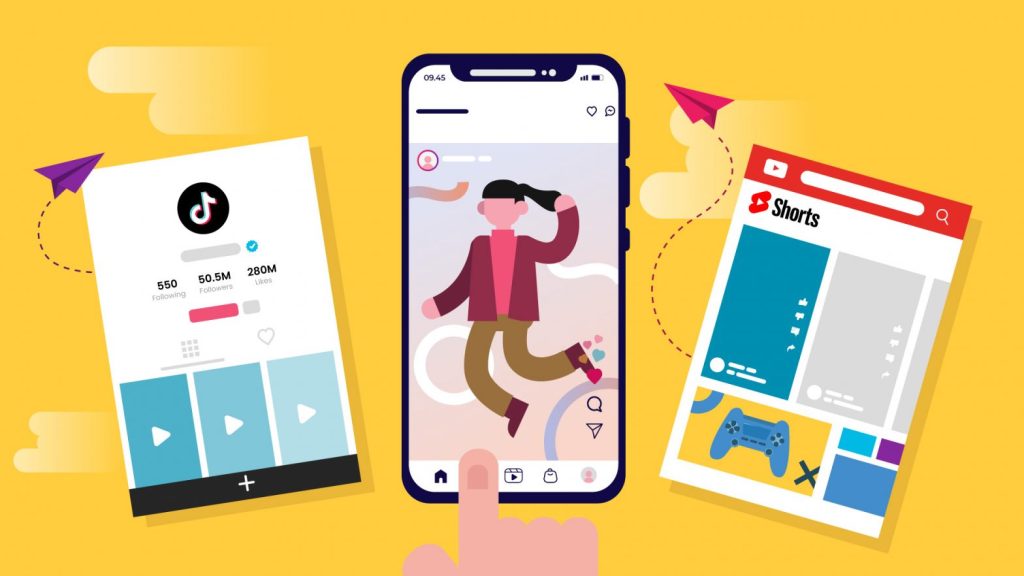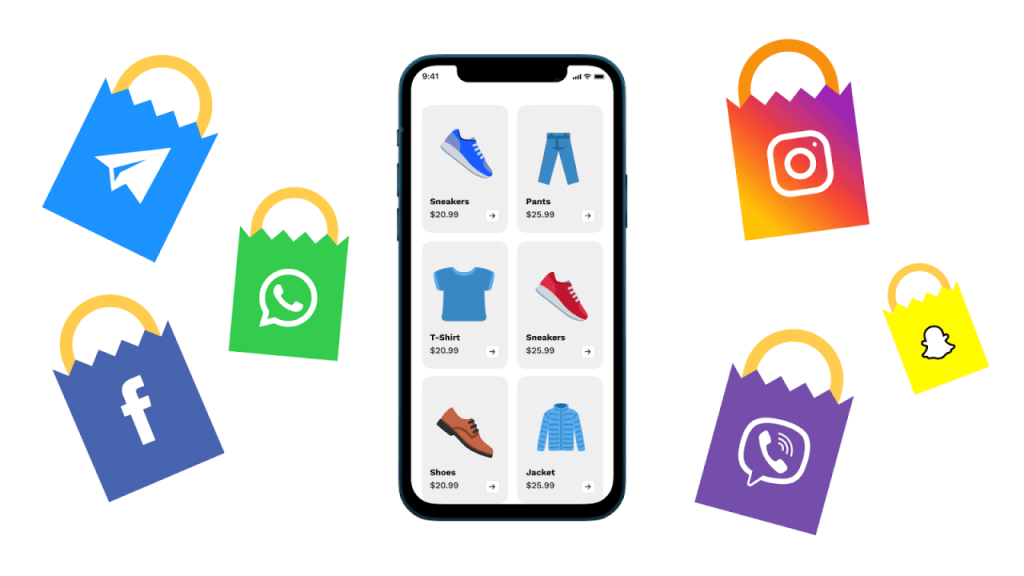
The rapidly changing landscape of digital marketing is essentially driven by fast-developing technology and changing consumer expectations. Businesses, in this regard, find themselves in the year 2024 within an increasingly complex, interconnected ecosystem in which it will no longer be sufficient to merely implement previously successful strategies. The increase in artificial intelligence, immersive technologies, and data-driven approaches to marketing has completely shifted how companies engage with audiences. Besides, consumers have become critical towards more personalized, ecologically clean, and transparent interactions compared to generic messages.
In this dynamic ecosystem, the capacity to adapt to emerging trends is no longer an option but rather a necessity. This blog dives into the top digital marketing trends to keep an eye on in 2024 and provides an overview for businesses on how to use these changes and make them work for them. Whether a marketer, business owner, or entrepreneur, this deeper understanding of such trends will let you forge ahead with value-driven campaigns that resonate in the fast-paced digital environment of today.
Artificial Intelligence (AI): The Backbone of Modern Marketing
 Artificial intelligence will continue to revolutionize the marketing world through automation of processes, improvement in accuracy, and personalization of experiences. Businesses in 2024 are very likely to continue integrating AI into their strategies for knowing customer behaviors, predicting market trends, and optimizing campaigns in real time.
Artificial intelligence will continue to revolutionize the marketing world through automation of processes, improvement in accuracy, and personalization of experiences. Businesses in 2024 are very likely to continue integrating AI into their strategies for knowing customer behaviors, predicting market trends, and optimizing campaigns in real time.
The role of AI tools, such as predictive analytics, is becoming invaluable in identifying patterns within customer data. For example, retail brands can predict which products a customer is most likely to buy and give them timely recommendations. Similarly, AI-powered chatbots are getting more intelligent, operating 24/7, answering complex queries, and at times cross-selling products to customers.
Additionally, AI complements this by developing content creation, with various tools able to generate e-mails, social media posts, and even video scripts specifically for different audiences. In other words, marketers will invest in AI not solely for automating processes, but it will also come up with relevant, data-driven customer journeys.
The Rise of Voice Search and Conversational AI
With the growth of smart speakers from Amazon Alexa and Google Nest, voice search is no longer a novelty but an up-and-coming standard. By 2024, more users will rely on voice commands for everything from finding local businesses to making online purchases. This change requires marketers to optimize their content for voice search by focusing on conversational keywords, concise answers, and local SEO.
 The next game-changer is conversational AI. Voice-activated chatbots and assistants are giving way to seamless, natural interactions. Think of a customer asking their virtual assistant for nearby restaurants and getting a recommendation and reservation link-all on conversational AI. Companies can make the customer experience much more intuitive and frictionless by harnessing this technology.
The next game-changer is conversational AI. Voice-activated chatbots and assistants are giving way to seamless, natural interactions. Think of a customer asking their virtual assistant for nearby restaurants and getting a recommendation and reservation link-all on conversational AI. Companies can make the customer experience much more intuitive and frictionless by harnessing this technology.
Interactive and Immersive Content
The digital consumer of 2024 is hungry for engagement, and interactive content is delivering the goods. Features like polls and quizzes, gamified experiences really capture attention and drive deeper user involvement. Interactive content doesn’t just delight; it educates and informs with extremely valuable insights into user preferences.
Immersive technologies such as Augmented Reality and Virtual Reality are taking the dimension of engagement to a completely new height. For instance, a beauty brand can let customers virtually try makeup; similarly, a furniture retailer might show how well the product would fit into their home. Such experiences enhance not only the rate of conversion but also customer satisfaction by clearing any doubt that they may have before making a purchase.
Influencer Marketing: Trust in Authentic Voices
 Influencer marketing is moving away from the early days of celebrity endorsements to a more strategic and authentic approach. Micro-influencers, with smaller yet highly engaged audiences, are taking center stage in 2024. Niche expertise and genuine connection with followers make them ideal partners for building trust and credibility with brands.
Influencer marketing is moving away from the early days of celebrity endorsements to a more strategic and authentic approach. Micro-influencers, with smaller yet highly engaged audiences, are taking center stage in 2024. Niche expertise and genuine connection with followers make them ideal partners for building trust and credibility with brands.
Moreover, brands are moving toward long-term collaborations with influencers that help establish consistent messaging and deeper relationships with their audiences. AI tools further ease influencer marketing by analyzing engagement metrics, audience demographics, and campaign effectiveness for maximum ROI.
Sustainability Marketing
As climate concerns continue to rise, consumers are no longer satisfied with just quality products but want to associate themselves with a brand that shares values with them. Sustainability marketing in 2024 speaks of authenticity; audiences call out greenwashing in a split second. Brands should clearly communicate transparently about their eco-friendly efforts.
![]()
For instance, Patagonia’s campaigns show how the company is into sustainability by highlighting their ethical manufacturing and recycling programs. These initiatives strike a chord with environmentally conscious consumers and build long-term loyalty. Businesses that weave sustainability into their narrative can create meaningful connections with their audience while contributing to a greater cause.
The Evolution of Data Privacy and Personalization
The tug-of-war of data privacy versus personalization goes on in 2024, mainly due to stricter data regulations, including the General Data Protection Regulation, the California Consumer Privacy Act, and third-party cookies’ depreciation. Ethical data usage becomes something that marketers must increasingly address-collecting and using first-party data for effective personalization.
This includes direct relationships with customers through loyalty programs, subscriptions by email, and interactive content. For example, the bottom line is that providing gated content in exchange for user information not only garners engagement but provides key insights into customer preferences. Transparency around data collection and use will continue to be important in gaining and maintaining customer trust.
Short-Form Video Content
 In 2024, this trend will surge ahead with TikTok and its clone on Instagram Reels and YouTube Shorts dominating short-form video content online. Usually 15-second or up to 60-second videos simply pop with attention in today’s small attention span economy.
In 2024, this trend will surge ahead with TikTok and its clone on Instagram Reels and YouTube Shorts dominating short-form video content online. Usually 15-second or up to 60-second videos simply pop with attention in today’s small attention span economy.
It lets marketers tell stories, make features known, and even allow their audience to be delighted, all within short-form content: brands participating in viral challenges, creating behind-the-scenes videos, and giving quick hacks based on one’s niche. This could create authenticity and relevance with leading edge music and hashtags to grow reach.
Social Commerce
Social media is becoming an integral part of e-commerce strategies. It is easy to find products and make purchases directly within your favorite platforms with features like Instagram Shops, TikTok Shopping, and Facebook Marketplace. Social commerce allows users to enjoy frictionless experiences, which ultimately create the highest chance of purchasing a product.
 In 2024, even live streaming is gaining inroads, where the live influencer or brand representatives show products in real-time, and audiences can also ask questions and make a purchase directly during the session. This blend of fun and convenience is redefining online shopping.
In 2024, even live streaming is gaining inroads, where the live influencer or brand representatives show products in real-time, and audiences can also ask questions and make a purchase directly during the session. This blend of fun and convenience is redefining online shopping.
Augmented Reality (AR) and Virtual Reality (VR)
AR and VR are revolutionizing the way customers engage with products and services. In 2024, these will be widely used for various marketing campaigns, product demos, and virtual experiences. For example, car manufacturers will offer virtual test drives through VR, while fashion retailers will provide AR fitting rooms.
By creating immersive experiences, businesses can engage their audience in memorable ways. These technologies not only differentiate brands but also help address customer concerns, like understanding a product’s size, color, or functionality before purchasing.
Blockchain for Transparency and Security
 Blockchain technology enters mainstream marketing, promising an edge in transparency and data security. In 2024, blockchain can help validate ad impressions, prevent click fraud, and ensure that the use of customer data remains ethical.
Blockchain technology enters mainstream marketing, promising an edge in transparency and data security. In 2024, blockchain can help validate ad impressions, prevent click fraud, and ensure that the use of customer data remains ethical.
One of the promising applications is in loyalty programs. With blockchain, businesses can offer secure, easily redeemable rewards across platforms, enhancing the customer experience. Blockchain also ensures authenticity, which is especially valuable for luxury brands combating counterfeit products.
Conclusion
The digital marketing trends in 2024 are toward a more immersive, personalized, and ethically-driven direction. While artificial intelligence is changing the way we predict customer behavior and optimize campaigns, augmented reality and blockchain are some of the technologies reshaping customer engagement and trust. At the same time, there is a greater focus on sustainability and data privacy-a reflection of the more value-driven and conscious consumer.
For businesses, the task will be to integrate such trends into their marketing operations with seamless ease while standing out as a brand. Indeed, those that move in step with innovation, customer-centricity, and investment in genuine storytelling are the ones that, in addition to capturing the attention of their audiences, will build long-term relationships with them. And as the digital landscape keeps on changing, keeping informed and proactive will ensure that your brand is relevant, resilient, and ready to go in the future of marketing.
